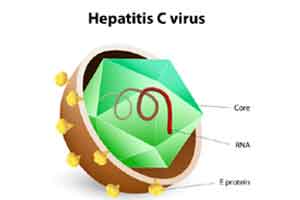- Home
- Editorial
- News
- Practice Guidelines
- Anesthesiology Guidelines
- Cancer Guidelines
- Cardiac Sciences Guidelines
- Critical Care Guidelines
- Dentistry Guidelines
- Dermatology Guidelines
- Diabetes and Endo Guidelines
- Diagnostics Guidelines
- ENT Guidelines
- Featured Practice Guidelines
- Gastroenterology Guidelines
- Geriatrics Guidelines
- Medicine Guidelines
- Nephrology Guidelines
- Neurosciences Guidelines
- Obs and Gynae Guidelines
- Ophthalmology Guidelines
- Orthopaedics Guidelines
- Paediatrics Guidelines
- Psychiatry Guidelines
- Pulmonology Guidelines
- Radiology Guidelines
- Surgery Guidelines
- Urology Guidelines
First two-dose Hepatitis B vaccine approved

US Food and Drug Administration (FDA) has approved a hepatitis B vaccine called Heplisav-B (Dynavax) that is the first and only two-dose vaccine for this infection.The vaccine is for prevention of infection caused by all known subtypes of hepatitis B virus in adults age 18 years and older.The present approval has come after two rejections in the past.
Hepatitis B is an extremely infectious and potentially deadly virus affecting a wide range of adults in the United States. There is no cure for hepatitis B, and infections are on the rise but it can be prevented through effective vaccination. In 2015, new cases of acute hepatitis B increased by more than 20 percent nationally. Current hepatitis B vaccines require three shots over a six-month period, however, almost half of adults fail to complete the series within one year.
"Prevention of hepatitis B in adults through vaccination is more important than ever given the increase in the rate of infections," said William Schaffner, M.D., professor of Preventive Medicine, Vanderbilt University Medical Center. "Too many at-risk adults remain unprotected against this virus. A two-dose schedule with higher rates of protection, along with other strategies, may help us move closer to the goal of eliminating hepatitis B as a public health problem in the United States."
The approval of HEPLISAV-B was based on data from three Phase 3 non-inferiority trials of nearly 10,000 adult participants who received HEPLISAV-B. The pivotal studies compared HEPLISAV-B administered in two doses over one month to Engerix-B administered in three doses over a six-month schedule.
Results from the largest Phase 3 trial, which included 6,665 participants, showed that HEPLISAV-B demonstrated a statistically significantly higher rate of protection of 95% compared with 81% for Engerix-B. In a subgroup analysis of 961 participants with Type 2 diabetes, HEPLISAV-B demonstrated a statistically significantly higher rate of protection of 90% compared to 65% for Engerix-B. Across the three clinical trials, the most common local reaction was injection site pain (23% to 39%). The most common systemic reactions were fatigue (11% to 17%) and headache (8% to 17%).
The company expects that the vaccine will become an essential tool in the public health community's fight to prevent hepatitis B, and they look forward to making HEPLISAV-B available to clinicians and their adult patients.

Disclaimer: This site is primarily intended for healthcare professionals. Any content/information on this website does not replace the advice of medical and/or health professionals and should not be construed as medical/diagnostic advice/endorsement or prescription. Use of this site is subject to our terms of use, privacy policy, advertisement policy. © 2020 Minerva Medical Treatment Pvt Ltd